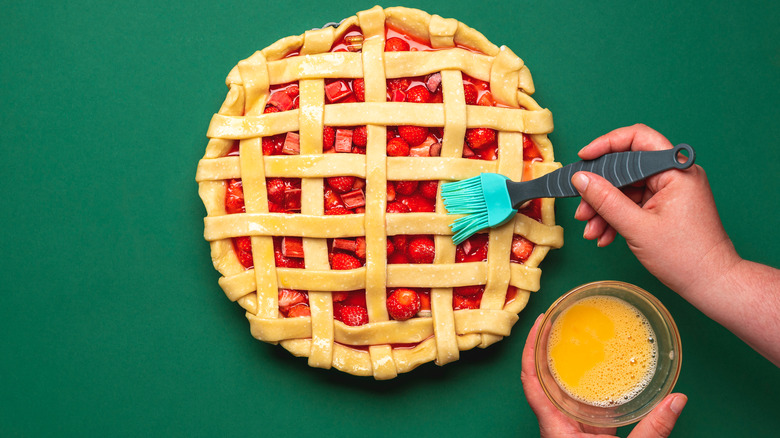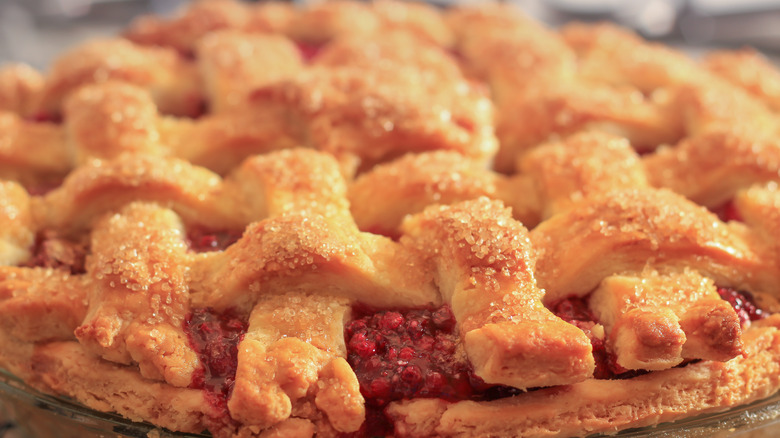Why It's Important To Pick The Right Wash For Your Pie Crust
Whether you're using store-bought pie dough or you choose to make your own pie crust, adding a wash to your unbaked pie crust is an important step in the baking process. In the simplest terms, a wash is typically an egg and liquid, like water, as noted by Food & Wine. Although they make the pastry dough look appealing by adding color and some texture, washes have a purpose beyond aesthetics.
As Everyday Pie details, washes act as an adhesive for the crust, and depending on the type of wash used, that adhesive effect can help the dough hold everything together inside the pie, or keep something clinging to the top, like sprinkles of sugar. While the most common wash to use is a blend of egg and water, there are a number of other washes that you may opt to use. Since each wash serves a different purpose or gives a different result, it's a good practice to understand how each one works so your pies turn out picture-perfect and delicious every time you pull them from the oven.
A wash can include egg, milk, or water
According to King Arthur Baking, washes can include egg, either part of the egg such as egg white or the egg yolk, or sometimes they're made from the whole egg. The article also explained that washes can be made from milk, water, or fat, like butter. Just as adding different ingredients to a dish will yield varying results, using different washes can help the crust finish in a different way. If you want a deep, golden flaky crust, then using a whole egg or just the yolk in your wash is the way to go, per The Pioneer Woman.
Some bakers who use eggs in their wash swear by adding salt to the egg wash for savory dishes, and Cook's Illustrated explains salt adds flavor and helps thin the egg mixture slightly so it's easier to apply over uncooked dough. Maybe your aim is to have a slightly golden crust, then a milk or water wash is the best option, although as Martha Stewart details, using milk or cream will provide you with a slightly shinier crust than using water alone. And if you're out of dairy, or eggs, or you have a food allergy, Kitchn reports that you can use unsweetened almond milk and coconut oil in place of dairy milk or butter, with both yielding similar results to the traditional ingredients.

